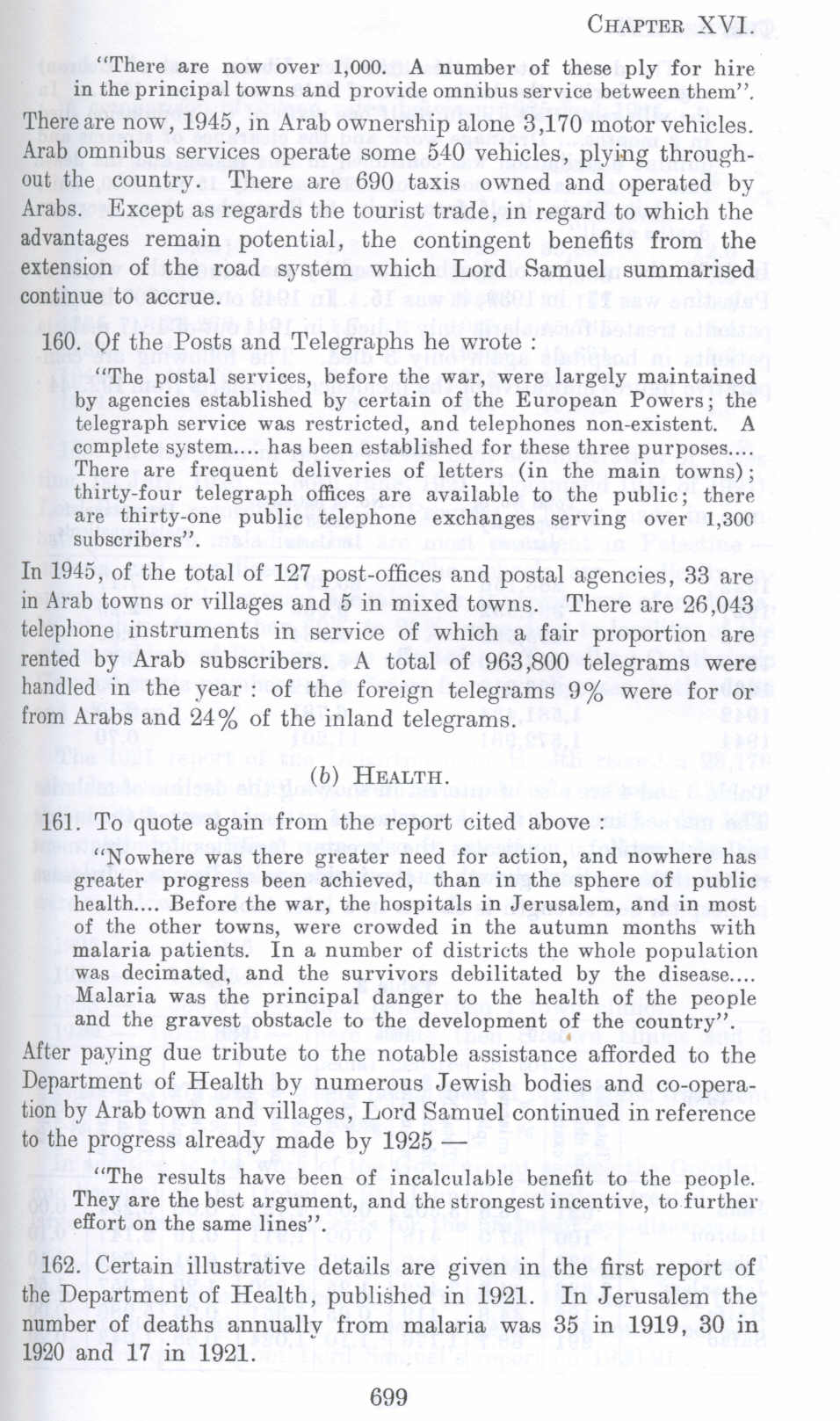| Prev | Next |  |
| Prev | Next |
| PalestineRemembered | About Us | Oral History | العربية | |
| Pictures | Zionist FAQs | Haavara | Maps | |
| Search |
| Camps |
| Districts |
| Acre |
| Baysan |
| Beersheba |
| Bethlehem |
| Gaza |
| Haifa |
| Hebron |
| Jaffa |
| Jericho |
| Jerusalem |
| Jinin |
| Nablus |
| Nazareth |
| Ramallah |
| al-Ramla |
| Safad |
| Tiberias |
| Tulkarm |
| Donate |
| Contact |
| Profile |
| Videos |
British Mandate: A Survey of Palestine: Volume II - Page 699 |
Disclaimer
The above documents, article, interviews, movies, podcasts, or stories reflects solely the research and opinions of its authors. PalestineRemembered.com makes its best effort to validate its contents.


Post Your Comment
*It should be NOTED that your email address won't be shared, and all communications between members will be routed via the website's mail server.
"There are now over 1,000. A number of these ply for hire
in the principal towns and provide omnibus service between them".
There are now, 1945, in Arab ownership alone 3,170 motor vehicles. Arab omnibus services operate some 540 vehicles, plying throughout the country. There are 690 taxis owned and operated by Arabs. Except as regards the tourist trade, in regard to which the advantages remain potential, the contingent benefits from the extension of the road system which Lord Samuel summarized continue to accrue.
160. Of the Posts and Telegraphs he wrote :
"The postal services, before the war, were largely maintained by agencies established by certain of the European Powers; the telegraph service was restricted, and telephones non-existent. A complete system .... has been established for these three purposes ... There are frequent deliveries of letters (in the main towns); thirty-four telegraph offices are available to the public; there are thirty-one public telephone exchanges serving over 1,300 subscribers".
In 1945, of the total of 127 post-offices and postal agencies, 33 are in Arab towns or villages and 5 in mixed towns. There are 26,043 telephone instruments in service of which a fair proportion are rented by Arab subscribers. A total of 963 ,800 telegrams were handled in the year : of the foreign telegrams 9% were for or from Arabs and 24% of the inland telegrams.
(b) HEALTH.
161. To quote again from the report cited above :
"Now here was there greater need for action, and nowhere has greater progress been achieved, than in the sphere of public health .... Before the war, the hospitals in Jerusalem, and in most of the other towns, were crowded in the autumn months with malaria patients. In a number of districts the whole population was decimated, and the survivors debilitated by the disease ... Malaria was the principal danger to the health of the people and the gravest obstacle to the development of the country".
After paying due tribute to the notable assistance afforded to the Department of Health by numerous Jewish bodies and co-operation by Arab town and villages, Lord Samuel continued in reference to the progress already made by 1925 -
11The results have been of incalculable benefit to the people.
They are the best argument, and the strongest incentive, to further effort on the same lines".
162. Certain illustrative details are given in the first report of the Department of Health, published in 1921. In Jerusalem the number of deaths annually from malaria was 35 in 1919, 30 in 1920 and 17 in 1921.
699